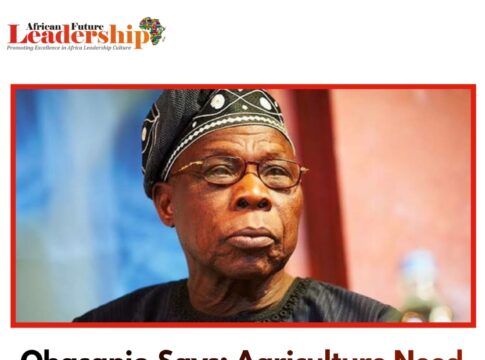By Vera Anyagafu
According to statistics, 30,000 plus African students study in the United States, on an annual basis.
Another 30,000 plus study in the United Kingdom annually and nearly 100,000 study in France, yearly.
Africans keep going to foreign countries to study and this way, the dynasty of wealth and exclusivity has been seriously lost in Africa.
According to UNTAD’S Trade and Development Report 2022, Africa’s economic activity is expected to expand by a moderate 2.7% in 2022 and 2.4% in 2023, following a rebound of 5.1% in 2021 However, this is very likely to suffer a huge setback. This is because Africa has a long history of people studying in foreign countries and carting away huge sum of foreign currencies in the process of effecting payments for their studies.
Under colonialism, many young Africans would go overseas, typically to the colonizing country to obtain a degree. However, this trend has not stopped, even after independence with many Africans studying abroad.
READ MORE: Abacha Family Was Consoles Over Death of Son, Abdullahi By President Buhari
It cannot be over emphasised that Africa’s economic growth has continued to decline very fast as the percentage of Africans studying abroad has been increasing yearly due to reasons like, exchange rate problems, scholarships, family immigrations, job requirements and opportunities for a new life, conferences, seminars, trainings and so on.
Hence, all of these have affected Africa’s economy.
In Denmark, the tuition fees are sometimes free for their home students while for foreign students including Africans, tuition fees range from 6,000 to 16,000 euro per academic year for Bachelor’s and Master’s programme. In Finland, it varies between 5,000 and 13000 euros for Bachelor’s degree; and 8,000 to 18,000 euro for Master’s degree. Scholarship is one way of contributing to foreign study, but we can say it is a scheme used to entice Africans. In some of these institutions, the scholarship is just a way to bring them in and at the long run, the said scholarships are discounted while they would still be required to pay huge amounts of money for tuition fee. It is supposed to be scholarship but still involves taking money from Africans in the form of capital flight, insurance fee etc.
In September, 2019, a Nigerian, William Nwabuwa was awarded scholarship to University of Salford, United Kingdom where he bagged his Master’s. He said, his tuition fee was 14,000 pounds with 2,500 discounted. This is aside the National Insurance fee he paid and others. He also had to work to sponsor himself to meet up with those bills. Therefore, to a great extent, these payments are contributing immensely to the economy of the United Kingdom. “A lot of the top skills and talents are leaving the country and going abroad and that is a major way of the degradation on African economy.
“Most people are usually not willing to come back and this plays a big role on the degradation process in Africa. As much as people try to escape from their shores to study abroad, they depart with loads of skills and talents, leaving their local economies in complete disarray. Western countries receive the tuition fees, national insurance, flight fares, skills transfer, money exchanges in terms of foreign exchange, manpower and human resources depletion, over time. Therefore, Africa needs to be in a better place to pour all these into Africa as we are losing a lot.”
He added, not getting any value for your effort is discouraging people, even in the face of new technologies, new methods and ways in general: thus, this degrades the economy but if we have it all in Africa, things will be much better.
According to Quadri Sultan, a staff of Tech Cabal, middle class Nigerians have been leaving the country which is the most prominent brain drain, in which Africa is losing people from the continent to foreign countries. Some Nigerians are seeking to study abroad as it is a sort of relocation plan for them since it is easier to study first to become a permanent resident. The Nigerian health sector, is losing resources and workers owing to doctors relocation on grounds of study for greener pasture and residency abroad.
READ MORE: Cubana Cheifpriest Canvases For Sanwo-Olu Says: One Good Turn Deserve Another
In a report by the Punch newspaper, it was revealed according to the President of the National Association of Nigeria Nurses and Midwives, Micheal Nanchi that “the workforce in the health sector is dropping and over 57, 000 nurses have migrated abroad within a period of five years and are moving out on a weekly basis. Some people are preparing in one form or another to leave either for Canada, UK, Australia or Saudi Arabia. However, the more Africans leave their countries, the more it decelerates and degrades the economy and each of the sectors of the economy as well. This is more so as Nigerians are doing well in the tech community and most of them are leaving the country to these foreign countries as tech personnel to invest in these foreign countries which also shows that Nigeria and other African countries are not just filled with scammers but also with brains, skilled personnel etc., who are making very good impact in foreign countries.
Nigeria and many African countries suffer a downturn and thousands of skilled workers in Nigeria or other countries on the African continent, are filling the workforce gaps in North America and Europe. If we look at Kenya, they have many outsourcing companies that cover different sectors. These companies rely on the workforce and infrastructure of the country to deliver high and quality service.
However, according to Total Outbound International, a mobile tertiary institution for students studying abroad, from all countries, for both sexes 15732 persons were reported to have been admitted in 2018. This figure was sourced from the World Bank in November, 2022.
Kenya is filled with very youthful and skilled population. Approximately 80% of the population is under 35. The adult population is made up of people young adults (15+ years). The literacy rate is estimated at 81.5% (male, 85% and female, 78.2%) and in 2019, Nairobi, Kenya’s capital, was ranked among the 21 most intelligent cities in the world by the Intelligent Communities Forum. Research carried out on other African countries shows how much Africans have in these foreign countries where they are studying and which is seriously telling on our economy in all sectors.
According to Daniel Ojukwu, an investigative reporter with the Foundation for Investigative Journalism, “Foreign study is something common now, Africa loses brains that could help the country in 10 to 20 years. So, you might not see an immediate impact, but there will be long term impact. After their masters, they get residence and work permit, for like two years and they are expected to renew. They then, acquire good minds from their exposure and would have been able to train and impact their own country.”
For instance, the current prime minister in United Kingdom is an Indian. The nationality with the highest number of immigrants, though is India. These are minds that would have helped their own country and now, they recently sign a law to allow more Indians to migrate to the UK and this way, they leave their own country and come to invest in another country.” He added, further “No African school rivals the ones available in UK. The reason most people travel out is for education and job opportunities. However, the African has to find a way to improve their standard and cost of living.” As Africans, we have a lot to do to develop our own countries.
We need to learn the standard practice of these foreign countries to do better in Africa.
Moreover, there is need for more job opportunities, and incentives by our governments to reduce the aspect of foreign study. There should be more placement studies to also help prevent the degradation of the economy by way of discouraging people travelling for foreign study.




